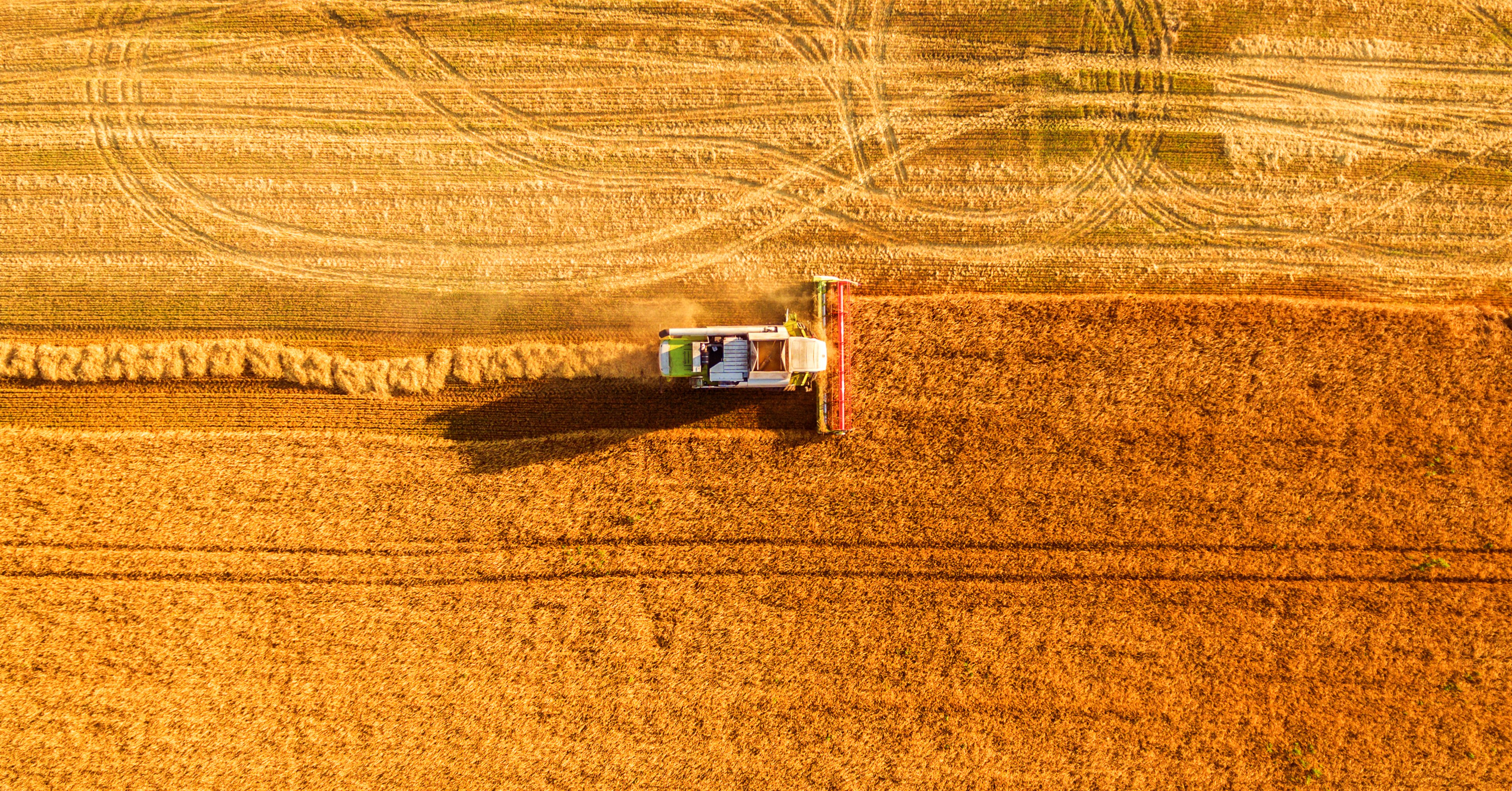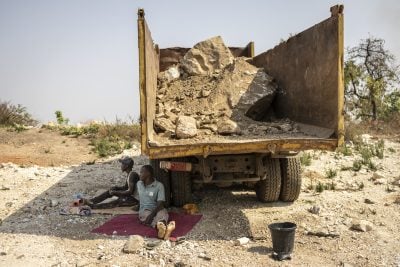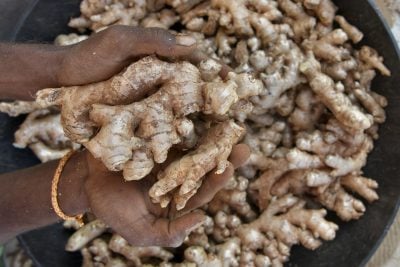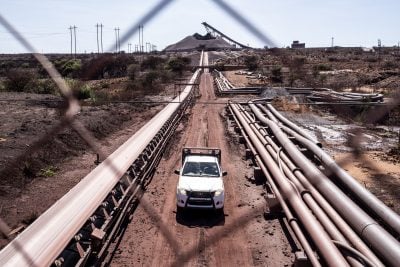This article was produced with the support of OCP
As a major player in global agriculture, Moroccan phosphate and fertiliser producer OCP Group is racing to unlock Africa’s agricultural potential as food imports and the continent’s population continue to grow.
Home to 60% of the world’s untilled, arable land, Africa has the potential to be one of the world’s major food exporters, but currently accounts for just 4% of total agricultural production.
With the world’s population forecast to grow from 7bn to 9bn by 2050, boosting the productivity of Africa’s smallholder farmers will be key to feeding the world, says OCP Africa’s CEO, Karim Lotfi Senhadji.
“Today these challenges are global issues. Taking into account this evolution and changes to consumption patterns in some developing countries, we will need to double grain production to feed the global population. Given that production in most developed markets has already reached optimal yield levels, Africa is the only market that will be able to meet this growing need for food in the years to come.”
In a bid to jump-start Africa’s agricultural revolution, OCP has launched a number of initiatives to scale up the continent’s agri-industry, giving smallholder farmers access to access to site specific fertilisers recommendations, soil testing and soil nutrients analysis.
With smallholder farmers making up 70% of Africa’s population, they will be key to not only transforming agriculture on the continent but to building an ecosystem that provides sustenance and employment for future generations.
Cultivating success
In response, OCP Africa launched a pilot programme, ‘OCP School Lab’ in December 2016. The goal was to raise awareness among smallholder farmers on how fertilisers, if used correctly, could boost the quality and quantity of their crop yields.
A caravan, in the form of a mobile laboratory truck, set off to criss- cross four regions in Côte d’Ivoire offering free training and soil testing, to help farmers better understand and manage their soil.
“Every day we go to meet with the new communities, usually between 100 and 150 farmers. We do one day of training on good agricultural practices – not only on fertilisers but on the general use of seeds, which crops are the most efficient to grow and most importantly, we also offer soil analysis for free to farmers to raise awareness of the importance of knowing what the soil really needs,” OCP Africa’s head of business development, Jihane Ajijti, told African Business.
The OCP School Lab programme provided around 300,000 farmers with soil analysis data for the first time and specialist recommendations from plant nutrition experts tailored to the needs of their soil in eight countries: Senegal, Côte d’Ivoire, Ghana, Nigeria, Kenya, Tanzania, Togo and Burkina Faso. The tests themselves would have cost farmers around $70 in the past, with samples sent abroad, Ajijti explains.
The group also worked in partnership with agronomists to develop a series of animated videos in local languages explaining modern agricultural practices to farmers, many of whom were illiterate.
Today OCP has 12 mobile laboratories touring 12 African countries and has so far trained 300,000 farmers since the beginning in December 2016, with the hope of reaching half a million by the end of next year.
After the harvest
OCP soon realised that raising awareness on fertiliser use wasn’t enough and they needed to go further in targeting the next stage in the supply chain.
The root of the problem, according to OCP, was that once farmers raised their crop yields, they rushed to the market to sell – usually at the lowest price due to supply and demand. This translated into losses through shortsold products, post-harvest waste and farmers waiting too long to reinvest in their crops, Ajijti says.
“We [were] trying to also see what happens after the harvest. Then we realised farmers lose an average 30% of the harvest just in their post-harvesting activities. Most of the time they are losing a lot of money because they don’t maximise the value of their harvest. So this is when we started realising that awareness was good but it’s not enough.”
In response, OCP’s strategists hatched the idea for their second flagship programme, ‘the Agri-booster’, which honed its focus on the next stage of the supply chain: post-harvest storage and the market.
In Nigeria, Ghana and Côte d’Ivoire, OCP not only provided farmers with hybrid seeds and fertilisers to ensure high-quality produce, but worked with buyers and distributors to secure a market for the farmers at a certain price.
A warehousing receipt system was also put in place for farmers to store the produce until the market price was right.
With the backing of OCP, farmers were then able to secure loans from micro-finance institutions that would allow them to expand and invest in high-tech machinery and fertilisers, Ajijti says:
“We did this for 5,000 farmers, we proved that this was possible and increased yields by 40% on average, on maize, and then we expanded from Nigeria, to Ghana and we are trying to do it in Côte d’Ivoire, and today we have 120,000 farmers who are benefitting from the programme.
“The yields were incredible when you have a support system for the farmer. In maize, using hybrid seeds, you usually had one to two tonnes per hectare.
“The best one had eight or nine tonnes per hectare, and the average was five tonnes. It was quite impressive. But then you have to store the harvest and sell the grains at the market.”
While impact investments to secure the returns of rural farmers go far beyond OCP’s traditional business, Ajijti says it is the only way to fully incentivise farmers to invest in fertilisers.
“We do this investment because we believe in the long run that there is a market that will take off. When the market takes off naturally there will be a new growth perspective.
“Normally it [the harvest] has nothing to do with our business, but we have to believe that if the farmer makes the investment and doesn’t get the revenue he’s expecting, we’re also going to be affected because he won’t invest again. He has to have an incentive to invest, because fertilise inputs are an investment for him.
“It has to work the whole value chain. Working only on fertiliser is not enough. It has to make sense from an agriculture perspective. Looking at the upstream, but also the downstream, at the markets, and even afterwards, but we’re not there in food processing yet. The markets will look at if it’s exported or done locally.”
As it stands, the continent is still dependent on the rest of the world for food imports, currently importing $40bn in food products this year. This figure is on a steady incline, up from $35bn last year, and expected to soar to $110bn by 2030.
The next step in Africa’s transformation into agricultural self-sufficiency is to even the trade balance by becoming a global food exporter, OCP’s CEO Lotfi Senhadji adds.
“Lastly, we need to focus on the development of agri-business. With a few exceptions, there is virtually no local processing in Africa.
“The example of cocoa is alarming: Côte d’Ivoire and Ghana together account for 60% of global production, but only get 5% of the world’s chocolate profits because there is no local processing.”
 Sign in with Google
Sign in with Google 



